December 4–5, 2025
Toulouse
Room TSE/IAST Building
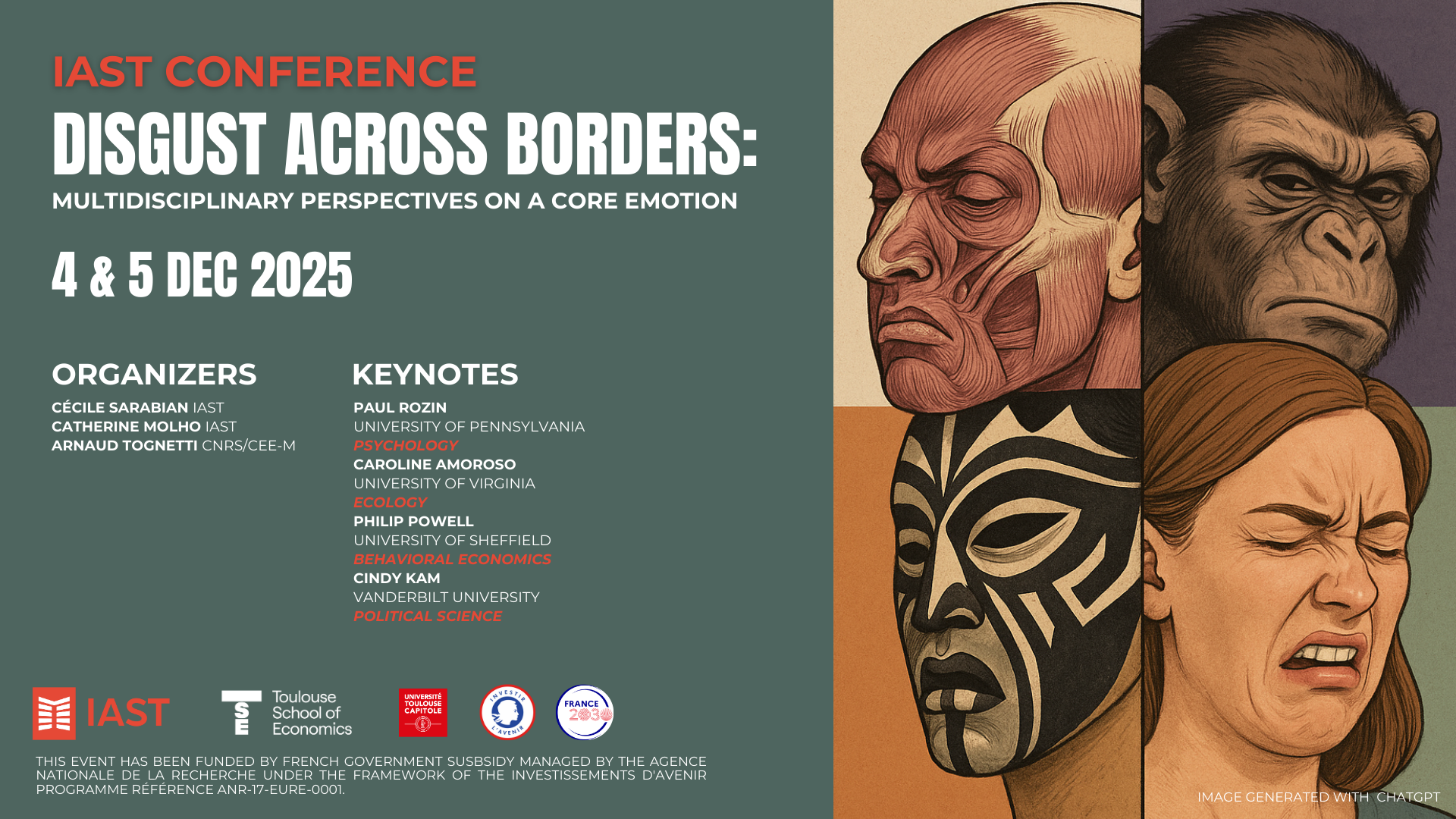
The Institute for Advanced Study in Toulouse (IAST) and the Toulouse School of Economics and Quantitative Social Sciences (TSE) will host the conference on Disgust across Borders: Multidisciplinary Perspectives on a Core Emotion.
Conference Theme
This international conference will bring together researchers from diverse disciplines— including psychology, political science, evolutionary biology, and related fields—to explore the basic yet multifaceted emotion of disgust. The meeting will aim to bridge disciplinary divides, incorporate cross-species perspectives, and examine applications of disgust research in politics, conservation, and animal welfare. We hope that this conference will mark the beginning of a recurring series, with Disgustology as a unifying theme.
Keynote Speakers
We are pleased to welcome four outstanding keynote speakers:
Caroline Amoroso (University of Virginia) - Evolution and ecology of infection avoidance: principles and experiments
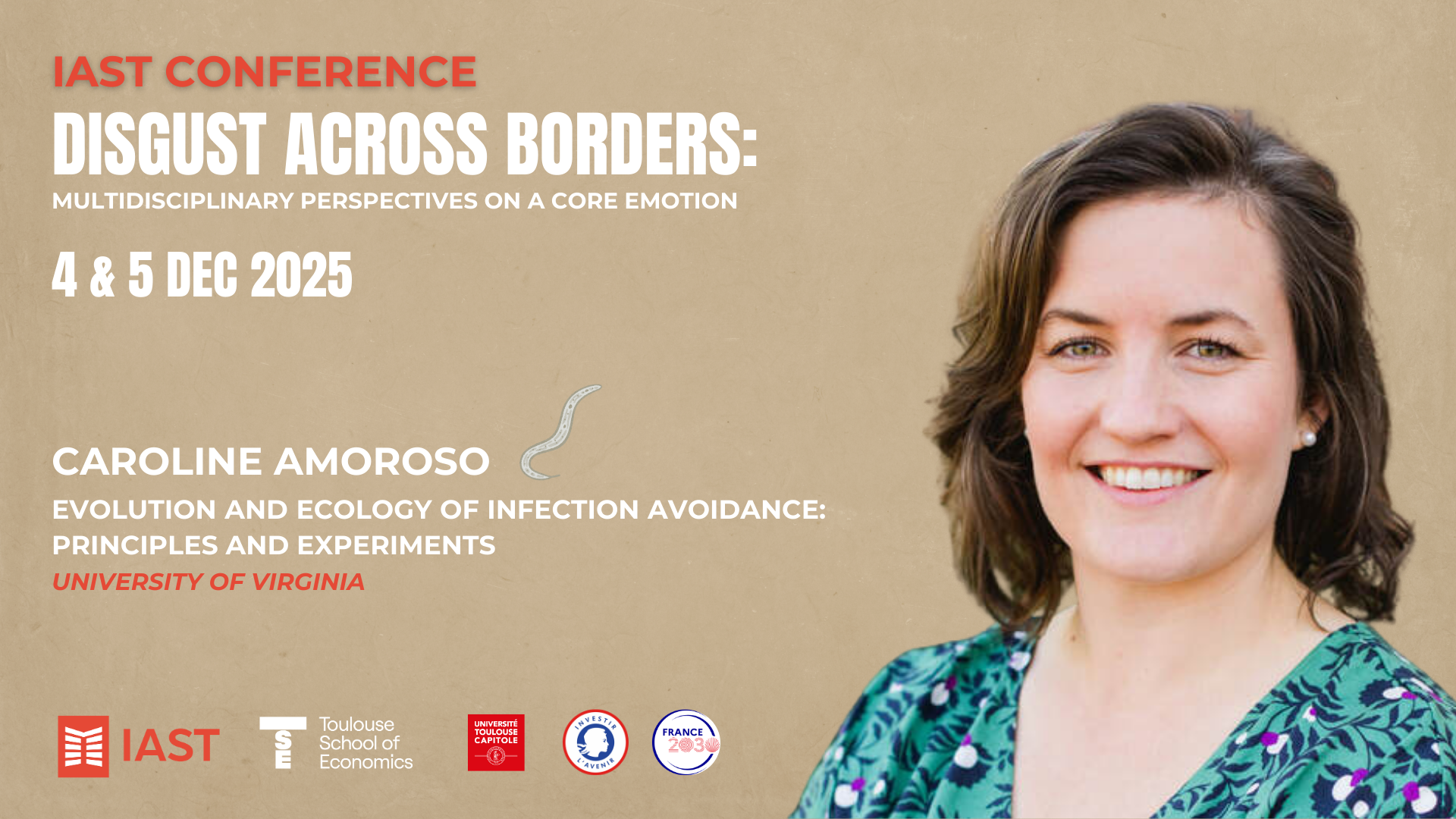
Abstract: Parasite avoidance behavior is widespread across animals and is expected to play a large role in the repertoires of defenses that hosts have against infection. We tend to explain avoidance as an adaptive trait: shaped by natural selection. Yet we understand remarkably little about the processes that govern the evolution of avoidance. This presentation will outline central assumptions and predictions about avoidance evolution and provide evidence from experiments testing these ideas in the nematode host Caenorhabidits elegans and Serratia marcescens. The evidence suggests that not only is avoidance likely to evolve in response to pathogens, but it may also have consequences for the evolution of other defenses, like resistance. These results provide a framework for interpreting observations of avoidance in natural host-parasite interactions, with the goal of establishing general principles that govern the evolution of avoidance.
Cindy Kam (Vanderbilt University) - The Politics of Disgust
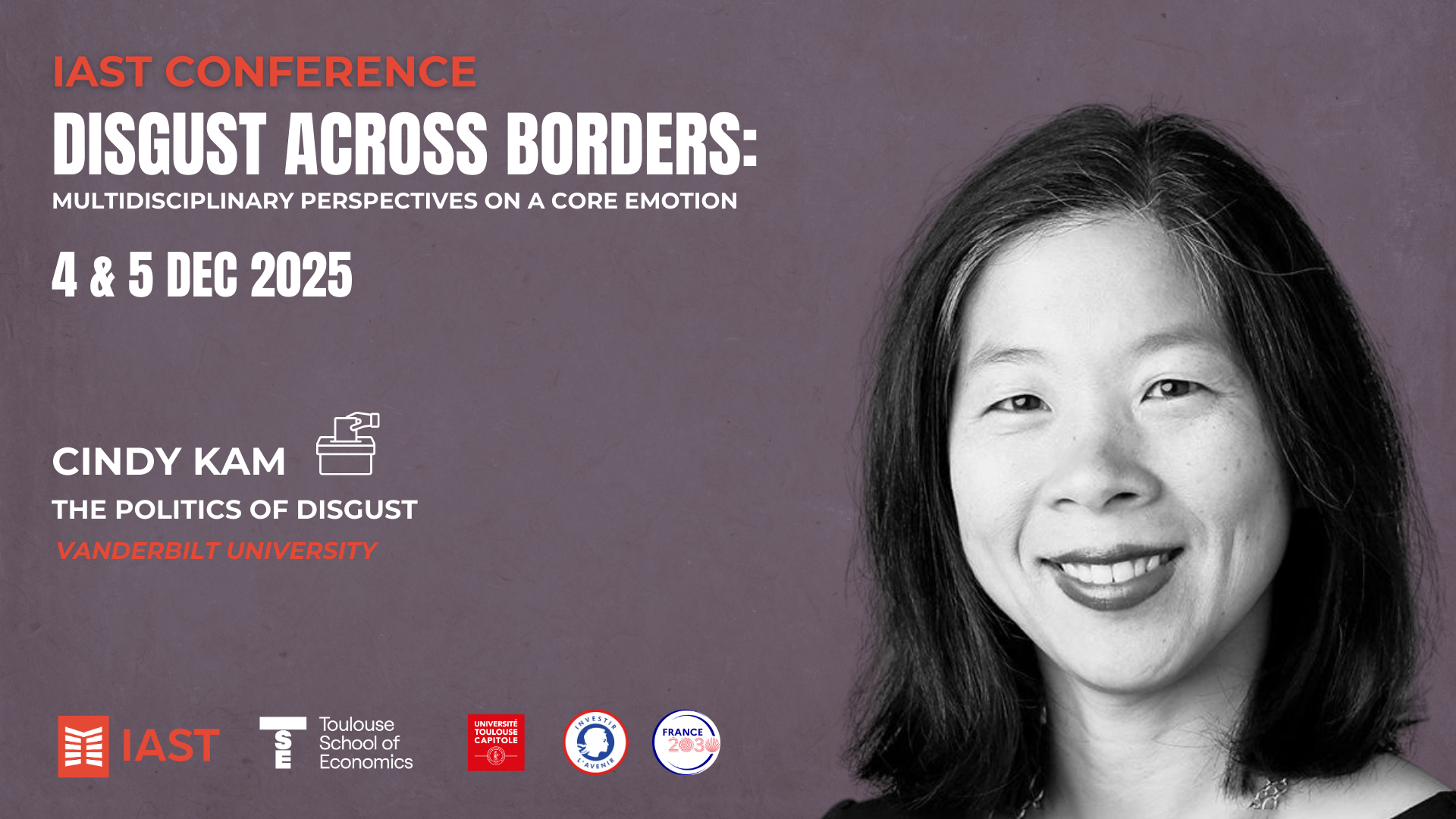
Abstract: What role does disgust play in politics? Most existing accounts of disgust characterize it as a conservatizing emotion, one that directs the public towards the right. In contrast, I will argue that disgust is politically opportunistic: ready to be marshalled by strategic political entrepreneurs on either side of the political spectrum. I argue that part of the mischaracterization of the conservatizing role of disgust can be attributed to how scholars have differentially defined ideology. In my analysis of American public opinion across a plethora of policy domains, I have found that disgust can sometimes push the public in what is generally considered to be liberal direction in areas such as food safety and public health, and can sometimes push the public in a conservative direction in areas such as intergroup relations. I argue that the broader role of disgust in politics is to push for protection. Sometimes liberal policies satisfy this protectionist role, yet other times conservative policies do. Finally, I note that because disgust is a political opportunist without deep-seated ideological commitments, it can take on a unique role in bridging partisan divides.
Paul Rozin (University of Pennsylvania) - Is disgust a unitary emotion? (presentation online)
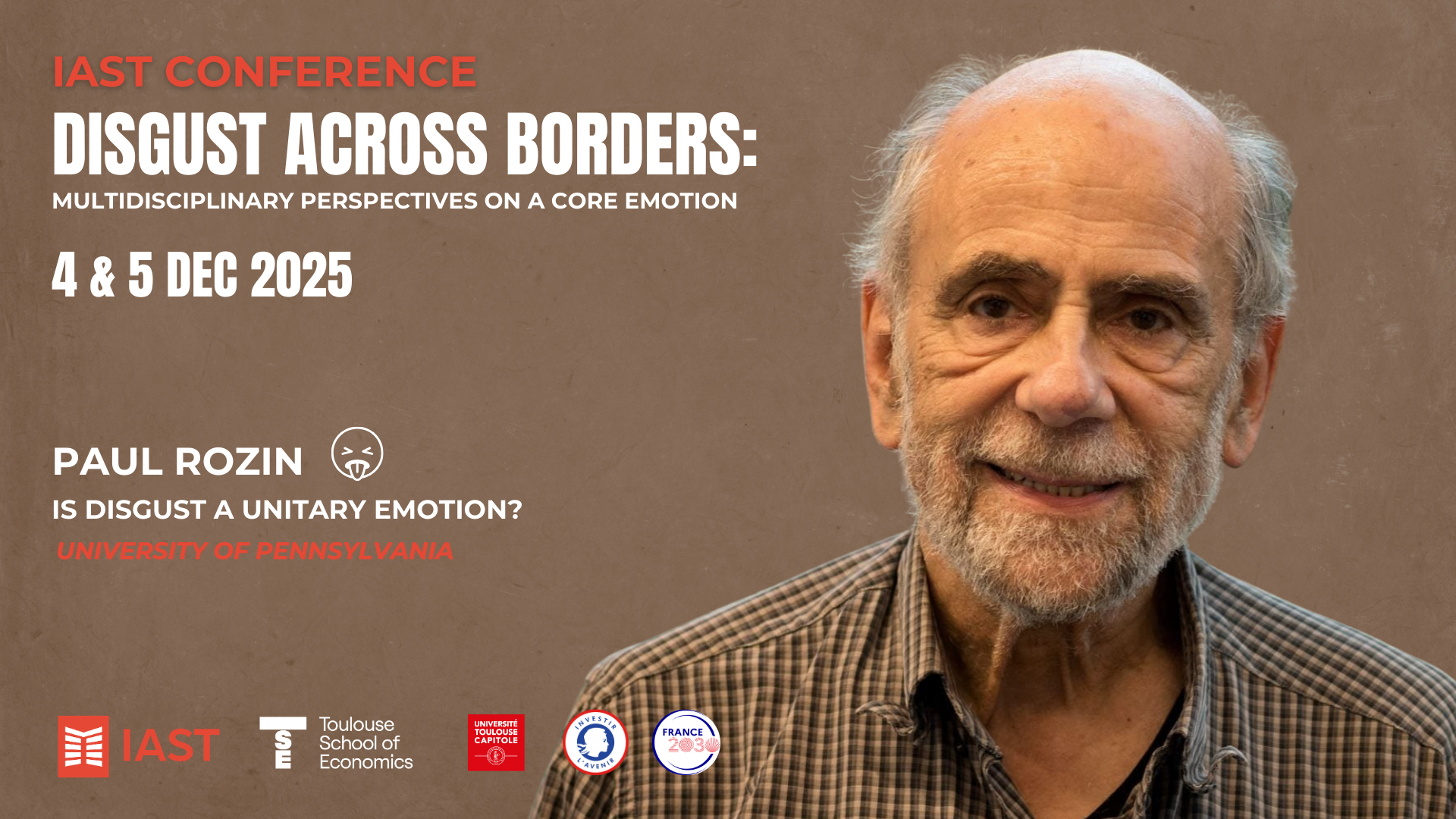
Abstract: Along with many other authors on disgust, Jonathan Haidt, Clark McCauley and myself treated disgust as unitary, with a fixed program of expressions, elicitors and behaviors. We suggested that principally over cultural evolution, the disgust program, which motivated avoidance, was attached to more and more culturally devalued elicitors, by the process of preadaptation. A unitary view confirms that the English word “disgust” describes a coherent concept. I examined this issue in a recent (in press) paper: Dissecting disgust: progress and problems, with two coauthors, Corey Cusimano and Joshua Rottman. There are two challenges to a unitary disgust. One is that it is hard to comprehend a unitary theme that binds the enormous range of disgust elicitors, from rotting food to moral violations. Pathogen avoidance, the most popular theme, is clearly inadequate. But there is an overarching theme: disgusting entities are things we (and our culture) wish to avoid, and be rid of. It is the same theme that explains the very diverse array of things we find in a waste basket. A more serious second challenge to the unity of disgust is whether the same rigid disgust program, with its expressions, physiological responses, and behaviors is activated by all disgust elicitors. The story here is uncertain, and a number of investigators, particularly James Russell and his collaborators , have argued that in terms of the disgust program, there is evidence for duality. In the facial domain, there are probably at least two distinct expressions, which map on to different elicitors. Nausea, the distinctive physiological sign of disgust, may not be part of the experience of all elicitors. A focus of concern in much recent research, is whether there is genuine moral disgust, and if so whether it pertains to a subset of all moralities, such as divinity violations or character flaws. A convincing case for moral disgust raises prominently the issue of whether disgust is a unitary emotion.
Philip Powell (University of Sheffield) - Putting the gross in domestic product: Disgust and consumer behaviour
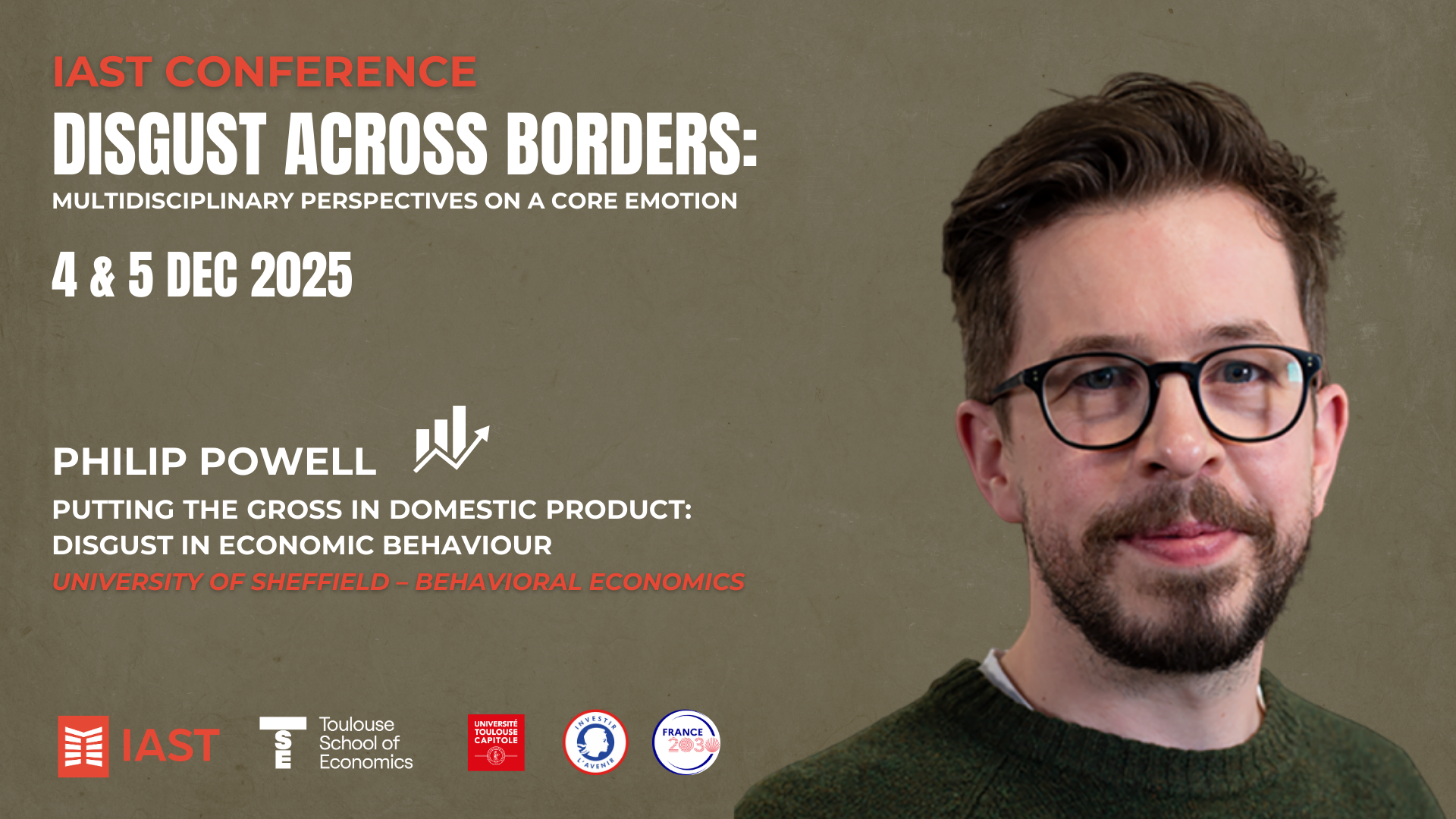
Abstract: From blocking the trade of human organs to the rejection of misshapen fruit and vegetables, disgust often acts as a constraint on consumer markets. Yet the same emotion has also been deliberately harnessed in advertising, where provocative campaigns use disgust to capture attention and drive sales. This duality highlights a complex and contextual relationship between disgust and consumption; while ‘gross’ products may fail, products whose marketing leverages disgust to go viral may succeed. Understanding this relationship is both intellectually interesting and practically important. Disgust is not only a powerful emotional driver of individual choices, but it also connects directly to the sustainability agenda—where shifting consumption patterns is critical. Here, disgust frequently acts as a barrier (e.g., aversion to “ugly” produce or recycled materials), but can also be leveraged as a facilitator (e.g., disgust directed at wasteful or greedy consumption). In this talk, I explore disgust’s dual role in consumer behaviour—as both constraint and catalyst. I examine its links to sustainable consumption, the ways in which certain consumption habits evoke social repugnance, and the opportunities this presents. Finally, I outline open research questions and suggest future directions for scholars of disgust, sustainability, and consumer behaviour.
Dates: December 4-5, 2025
Location: Toulouse School of Economics (Auditorium 3 Jean-Jacques Laffont)
Organizers: Cécile Sarabian, Catherine Molho, & Arnaud Tognetti
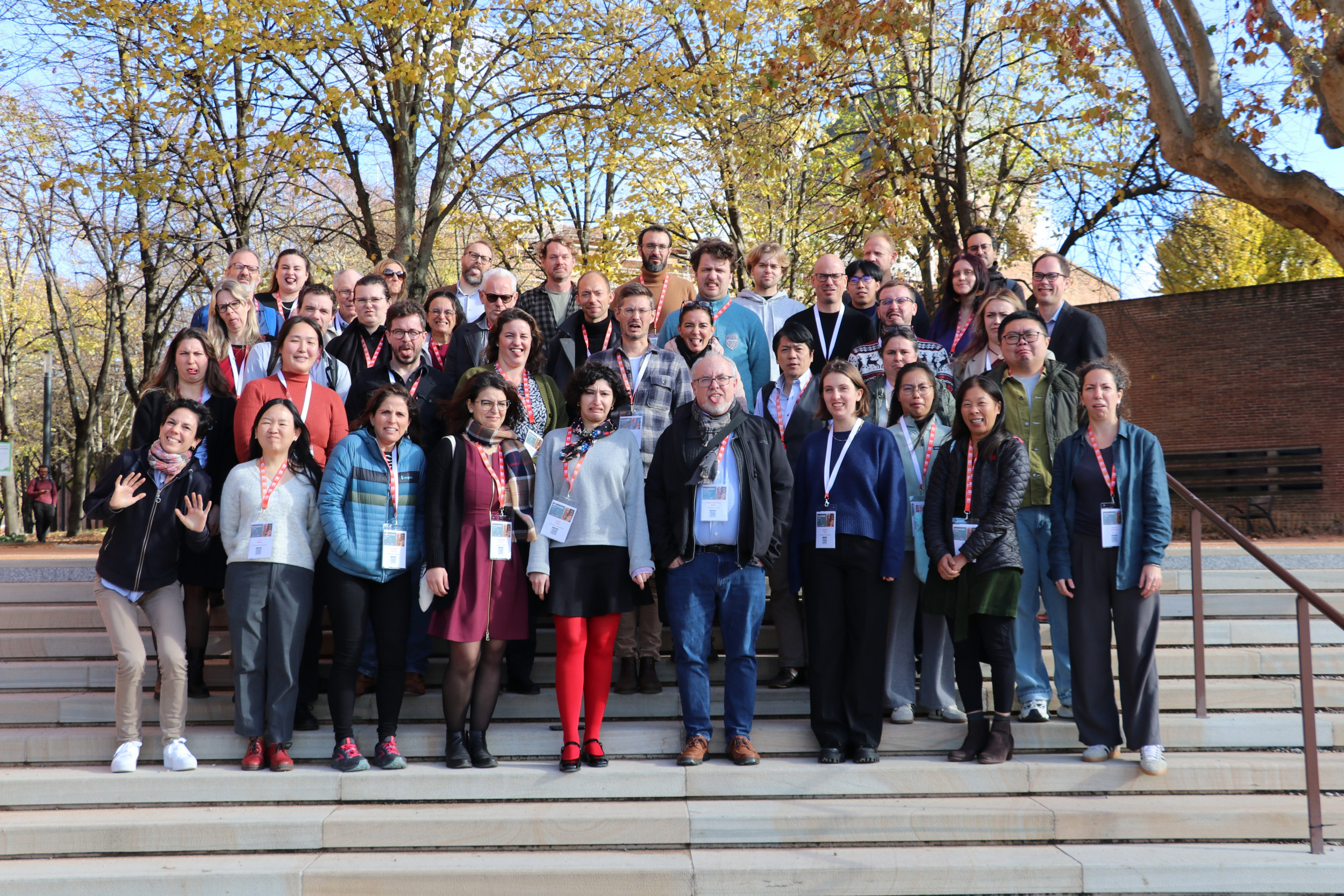
Contact
If you have any questions, feel free to reach out at disgustnerds@iast.fr
----------------------
This event is funded by a French government subsidy managed by the Agence Nationale de la Recherche under the framework of the investissements d'avenir programme reference ANR-17-EURE-0010.


Reference
Disgust across Borders: Multidisciplinary Perspectives on a Core Emotion, Toulouse, December 4–5, 2025, room TSE/IAST Building.
